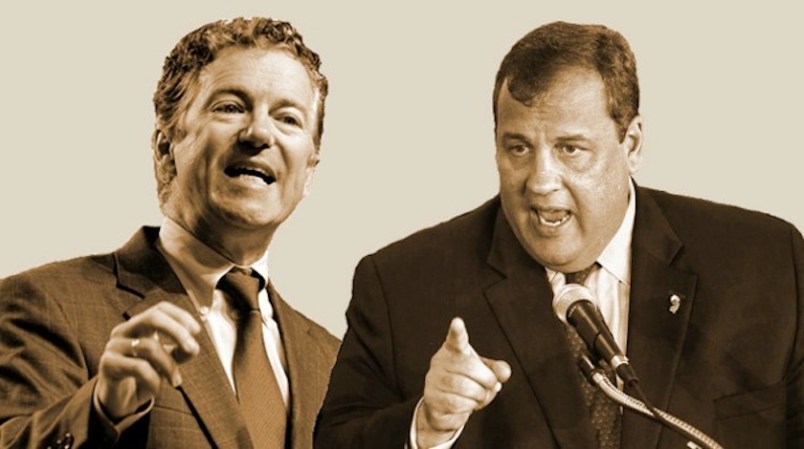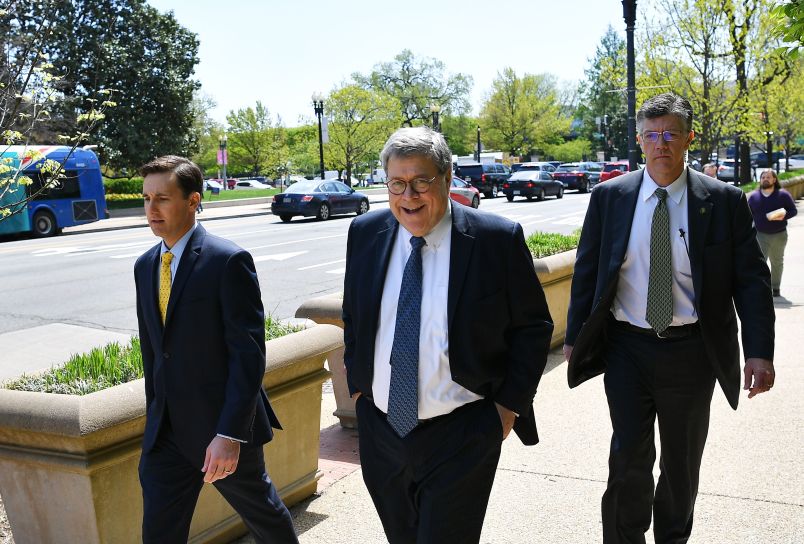Something surprising came out of the mouth of “Fox and Friends” co-host Peter Doocy on Tuesday morning.
“There are no two sides to the issue. Vaccines work,” Doocy said.
The “Fox and Friends” crew, along with the rest of the media, was still processing remarks from several potential presidential candidates about whether parents should have more of a choice in vaccinating their children in the context of a major measles outbreak that began in California.
Doocy’s strong statement of support for vaccinations contrasted with Fox’s welcoming attitude toward the many anti-vaccine activists who’ve guested on its programs over the years. Back in 2011, co-host Clayton Morris declared “Fox & Friends” to be “at the forefront” of the debate over whether childhood vaccines were linked to autism.
So what changed? Here are some of the medical and pop culture milestones in the protracted rise and then swift fall of anti-vaccine “science.” It underlines just how thoroughly the myth of a link between vaccines and autism has been debunked and how unusual it is for anyone to continue to treat it seriously.
February 1998
Dr. Andrew Wakefield published a research paper in British medical journal The Lancet that suggests the measles, mumps and rubella (MMR) vaccine may cause autism.
October 2001
An Institute of Medicine report concluded there was inadequate evidence to either prove or disprove that thimerosal, a preservative containing mercury that is used in small concentrations in some vaccines, may cause neurodevelopment disorders like autism.
After 2001
Vaccines recommended for children 6 or younger did not contain thimerosal, with the exception of the flu vaccine.
2004
The Institute of Medicine revisited the hypothesis that MMR or other, thimerosal-containing vaccines may cause autism. This time, the IOM concluded there is no evidence to support that notion.
June 2005
Robert F. Kennedy, Jr. published an article, “Deadly Immunity,” in Salon and Rolling Stone alleging that government health agencies knew about a causal link between vaccines containing thimerosal and autism but tried to cover it up. The article was met with immediate backlash, prompting Rolling Stone to add an editor’s note.
December 2006
British journalist Brian Deer published an investigation in the Sunday Times that found Dr. Wakefield was paid more than $665,000 by lawyers trying to prove that the MMR vaccine was unsafe.
February 2008
While running for the Republican nomination for President, Sen. John McCain (R-AZ) said at a Texas town hall meeting that there is “strong evidence” that a preservative in vaccines causes autism.
April 2008
TV star and former Playboy model Jenny McCarthy, whose son was diagnosed with autism in 2005, went on CNN’s “Larry King Live” to talk about the vaccine toxins and schedule that she believes contributed to her son’s disorder. She insisted that parents’ anecdotal information “is science-based information” and argued vaccines “play the largest role right now” in causing autism.
That same month, at a town hall event in Pennsylvania, then-Sen. Barack Obama responded to a question about rising autism rates.
“We’ve seen just a skyrocketing autism rate,” he said. “Some people are suspicious that it’s connected to the vaccines. This person included. The science right now is inconclusive, but we have to research it.”
A spokesman later said that Obama was not referring to himself and provided video that showed Obama pointing at someone in the audience who had asked a question.
October 2009
Then-gubernatorial candidate Chris Christie (R) voiced strong support for anti-vaccine parents during an interview with Fox Business News host Don Imus. Drawing on time he spent with parents of autistic children, Christie expressed concern about then-Gov. John Corzine’s (D) decision to make flu vaccines mandatory and said there needed to be more opt-outs for families who are strongly opposed to vaccines.
“I do believe that these parents need a voice in these debates,” he said at the time.
The founder of Life Health Choices, a group that advocated parents’ choice in immunizations, also touted a letter of support she said her group received from Christie’s first gubernatorial campaign.
February 2010
The Lancet retracted Wakefield’s paper after a British medical panel determined that Wakefield had violated research ethical rules while treating the children in his study.
January-February 2011
Salon pulled Kennedy’s “Deadly Immunity” from its website, stating that “continued revelations of the flaws and even fraud tainting the science behind the connection make taking down the story the right thing to do.” Rolling Stone restored a link to its posting of the article that had disappeared, after some alleged the magazine intentionally removed it from the website.
December 2013
The U.S. Centers for Disease Control and Prevention reported a spike in measles in the U.S. in 2013. That year saw nine outbreaks and 175 cases of measles, which was about three times the usual number of reported cases (about 60 per year). The CDC said 98 percent of those measles patients were unvaccinated.
April 2014
McCarthy published an op-ed in the Chicago Sun-Times that lambasted the media she believes had misstated her views on immunizations and declared that she is “not ‘anti-vaccine.'”
“I believe in the importance of a vaccine program and I believe parents have the right to choose one poke per visit,” she wrote. “I’ve never told anyone to not vaccinate.”
December 2014-January 2015
A measles outbreak began sometime in mid-December at California’s Disneyland Park. The CDC reported that between Jan. 1-30, at least 104 people from 14 states had contracted the virus.
Feb. 1
President Obama responded to the measles outbreak by urging parents to vaccinate their kids in a pre-Super Bowl interview. He added that the science supporting immunizations is “indisputable.”
Feb. 2
New Jersey Gov. Chris Christie (R) said during a trip to London that public officials need to strike a “balance” on vaccinations that allows parents “some measure of choice” in immunizing their children.
Sen. Rand Paul (R-KY) then went beyond Christie’s comments, arguing that most vaccines “ought to be voluntary” and later citing cases he’d heard of where healthy children “wound up with profound mental disorders after vaccines.”
Correction: This post previously identified Slate as one of the publications that carried Robert F. Kennedy Jr.’s “Deadly Immunity.” The article was actually published in Salon.











Fucking Republicans. They’ll trot out the “I’m not a scientist” line in response to the established science of climate change, which 99% of climate scientists agree on, but then rely on a debunked, discredited scientist who has been ostracized from the scientific community to support their claims that vaccines cause autism. Fucking morons.
I have been looking for a term to describe Rand Paul’s comments this week. Palinesque? Or, maybe Sarahly, (with apologies to the bakery company).
The internet is the tower of Babel. We are daily bathed in a sea of misinformation. Learn to verify and validate, and never place belief before fact. The path to wisdom is littered with the cow-pies of the Devil’s own Herd. Tread carefully.
Random has had long ties with a wingnut group that has advocated against vaccinations. Maddow touched on it last night.
“Freedom” is never absolute. Justice Holmes established this fact many, many years ago. Why do today’s GOP/TP want to convince us otherwise? Because their definition of the word is “I can do anything I want, to hell with you!” Not quite “shouting ‘Fire’ in a crowded theater,” but seriously, not choosing to vaccinate your child has an impact on all of the rest of us. I for one would be happy to allow parents to “opt out” of having their children vaccinated, provided I have the right to “opt out” of having them in close proximity to MY children, spreading diseases which we thought we had eradicated. These anti-vaxxers really are the worst kind of ignorant folk, and Jenny McCarthy (and Rand Paul) can go straight to Hell.